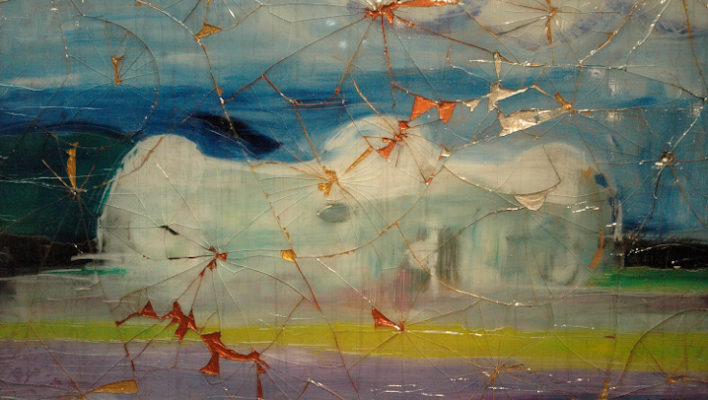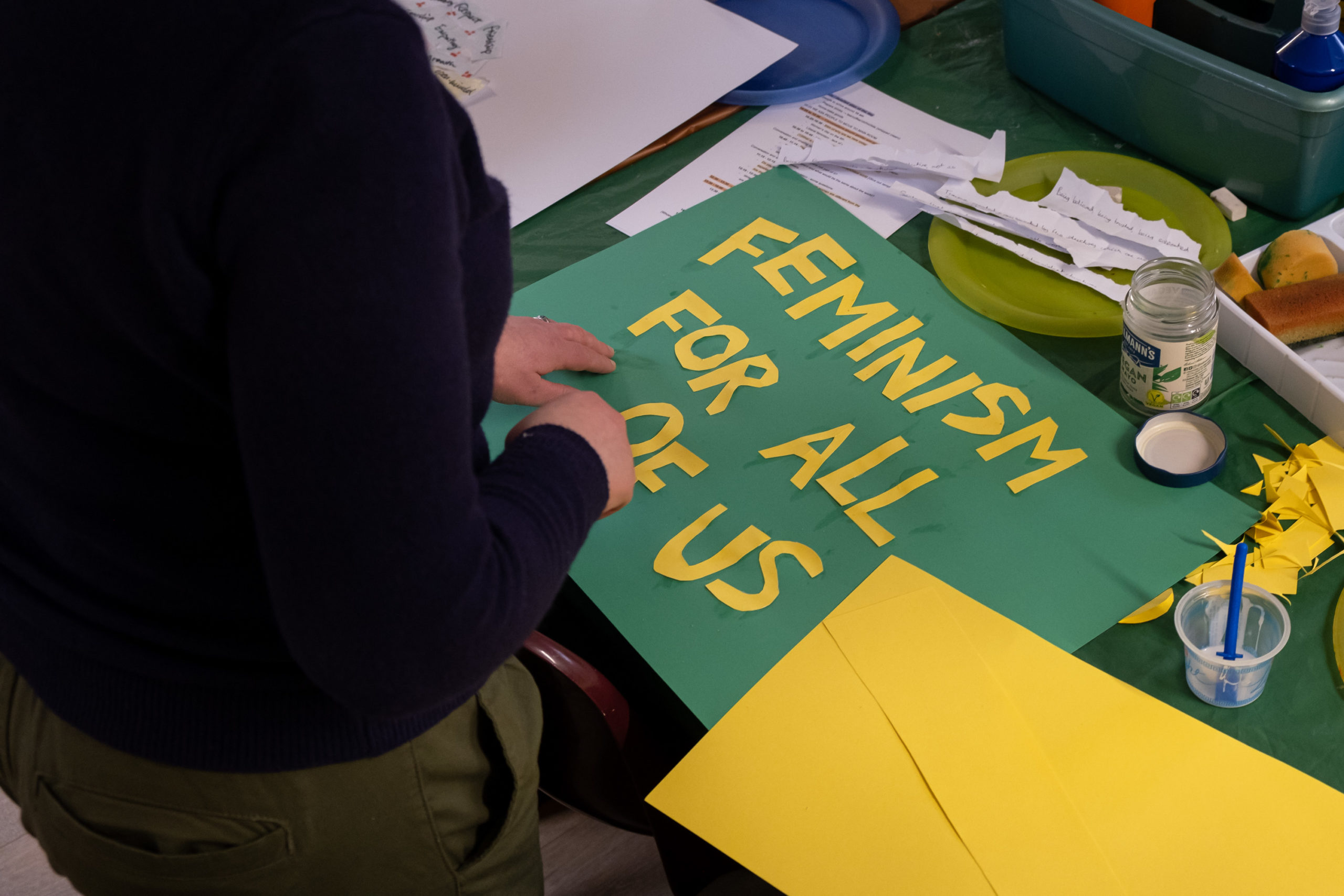Domestic Violence and Poverty: “That night I left, we had nothing”

Painting by Jacqueline Page
The International Day for the Elimination of Violence Against Women is 25 November. It is a day created by the United Nations to raise awareness about violence experienced by women and girls across the world. The UN also recognises that situations like migration, disability, and poverty cause some women to be especially vulnerable to violence. This year, Angela, an activist from ATD Fourth World who has experienced domestic abuse, shares her story.
Angela is a survivor of domestic violence that she experienced in the 1990s. She says: “It’s a big word, domestic violence. Until I realised I went through it myself, I couldn’t believe it. I takes a lot of courage to ask for help, and to talk about it”.
Isolation and stigma
Women with lived experience of poverty are especially vulnerable when in a situation of domestic violence. The difficulties compound: it is harder to leave without the certainty of safe housing. There is a higher risk of homelessness and isolation.
“When you meet someone you love, you would never think they would put you through that. I hate when people say, ‘You chose this situation’. No — I chose to be with him; but that doesn’t give him the right to hit me. It’s not right.”
Women experiencing poverty also find less support around them to help them deal with such violence. “I felt so alone. I felt embarrassed. All I wanted was to protect my children — I didn’t want them to see what their father was doing to their mum. I didn’t want them to think it was normal.”
Harder to leave
There are many hidden costs of abuse that can make it harder for women in poverty to leave, or put women into situations of poverty after experiencing abuse. “The house we had before, I thought of it as somewhere safe, I thought of it as home. But when you experience domestic abuse, you have to leave all of this.
“That night I left, we had nothing. No money, no belongings. We had to leave everything behind.
“At the refuge, it is somewhere strange. It’s not home. Nothing is ours, you don’t own the key to the front door or have your own space. And again and again, you have to move.”
Today, many women are denied safe housing in the UK when fleeing domestic violence, because of a lack of housing possibilities. The Met police has also been found to be institutionally misogynistic.
“The police needs to be trained to support women in situations of domestic abuse. I was told, ‘It was just a dispute’. They didn’t want to hear it.”
It is not the survivors’ responsibility to find safe housing. It is not enough to hope that abusers will change with sanctions. To address this problem, we need systemic solutions and more support for the survivors.
“I felt blamed for what I was going through. It is bad enough you are thinking it is your fault; it’s worse when someone else says it to you. You start believing it.”
The system needs to be rebuilt to provide a safe structure for people who need it most. We also need to listen to the voices of the more marginalised first; we can’t have a movement against domestic violence whose main voices are not inclusive of people with lived experience of poverty.
Breaking the silence
“Who knows, my story could help other women. Someone else could connect with my story. When I arrived at the refuge, I created close bonds with the other women because we shared our stories. We felt less alone.”

“You just keep telling yourself: I can do it. I can survive. Look where I am now: I got my confidence back, I am sharing my story. I can conquer anything. I am telling other women: you will, too.”
Tackling poverty and especially improving women’s economic security are steps towards making it safer for women to navigate the world. With public services that ensure women’s economic, social and cultural rights, women are less vulnerable to domestic violence and abuse. “We need more action, not just a small plaster to cover such a big wound.”
– Angela and Celia
If you or someone you know is experiencing domestic abuse, you can:
- Call the 24-Hour National Domestic Abuse Helpline at 0808 2000 247 for help and information to access refuges in England*
- Find out more about your rights and options at https://www.nationaldahelpline.org.uk/en/Your-rights-and-options and https://www.womensaid.org.uk/information-support/the-survivors-handbook/
- Write to Women’s Aid live chat at https://chat.womensaid.org.uk
- If you need immediate help, ask for ANI (Action Needed Immediately) in participating pharmacies and Jobcentres. Find the list at https://enough.campaign.gov.uk/get-support/ask-for-ani
*In Northern Ireland, call the Domestic and Sexual Abuse Helpline at 0808 802 1414
In Scotland, call the Domestic Abuse and Forced Marriage Helpline at 0800 027 1234
In Wales, call Live Fear Free at 0808 80 10 800
If you are a man experiencing domestic abuse, you can call the Men’s Advice Line at 0808 801 0327 all across the UK.

